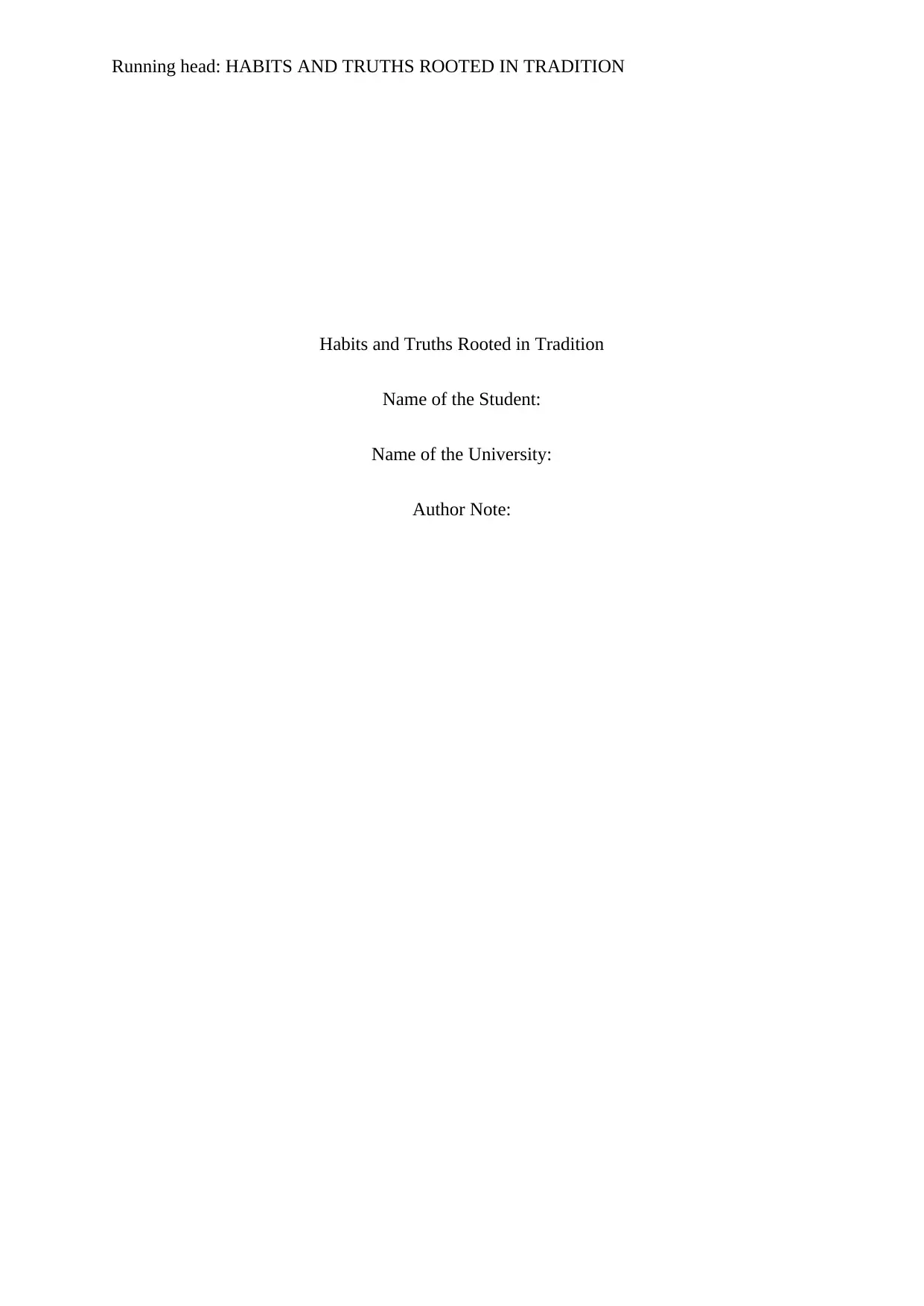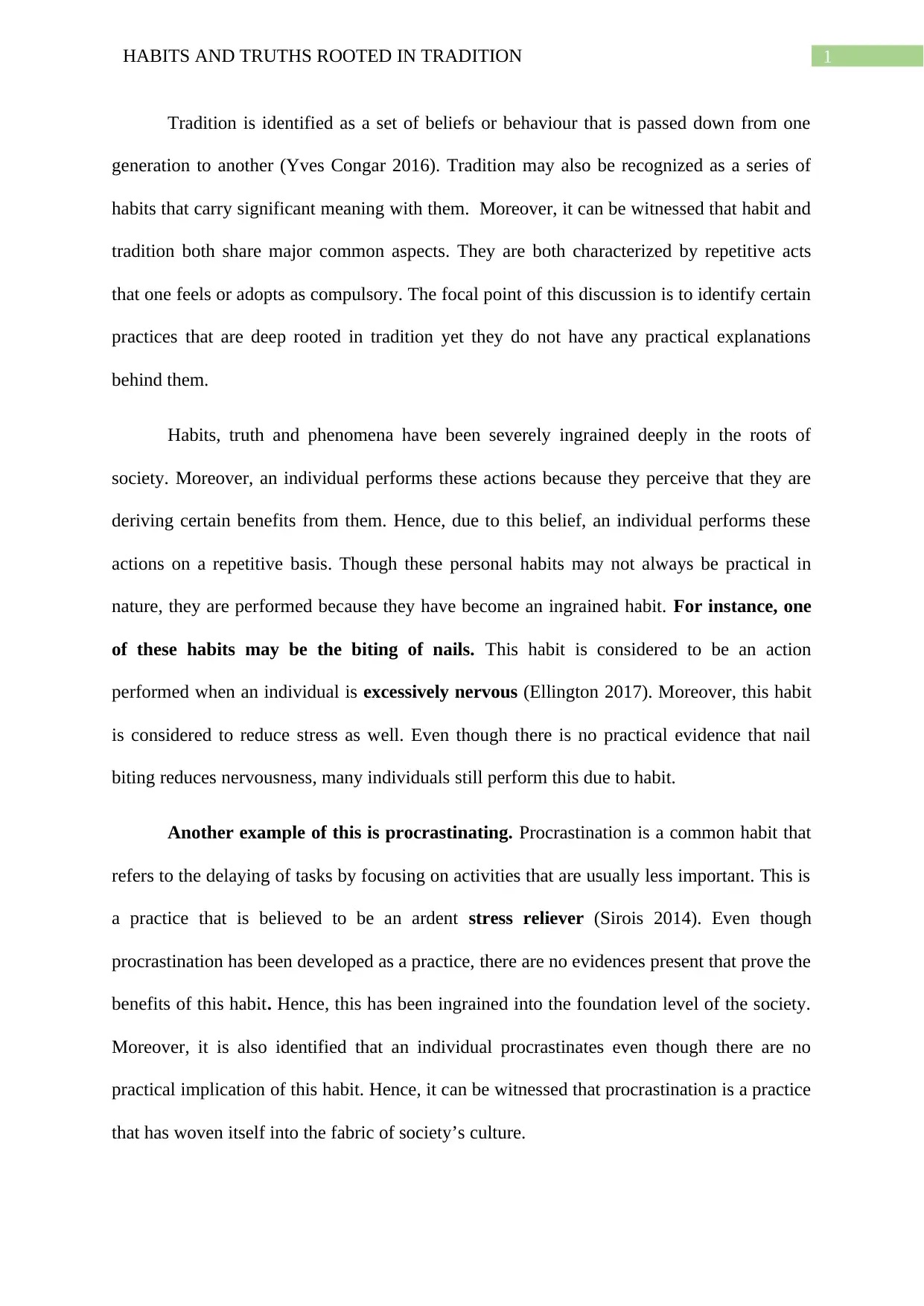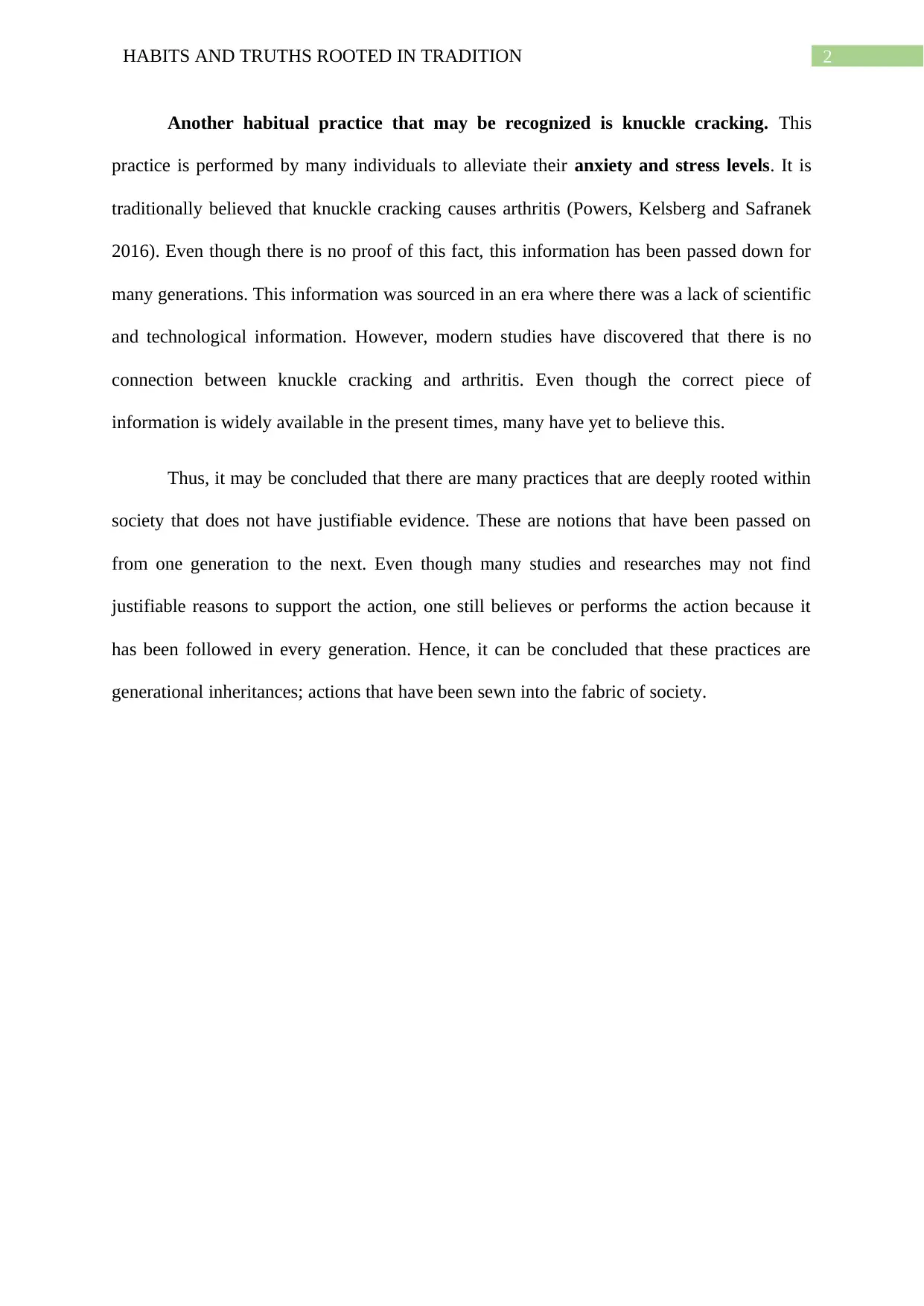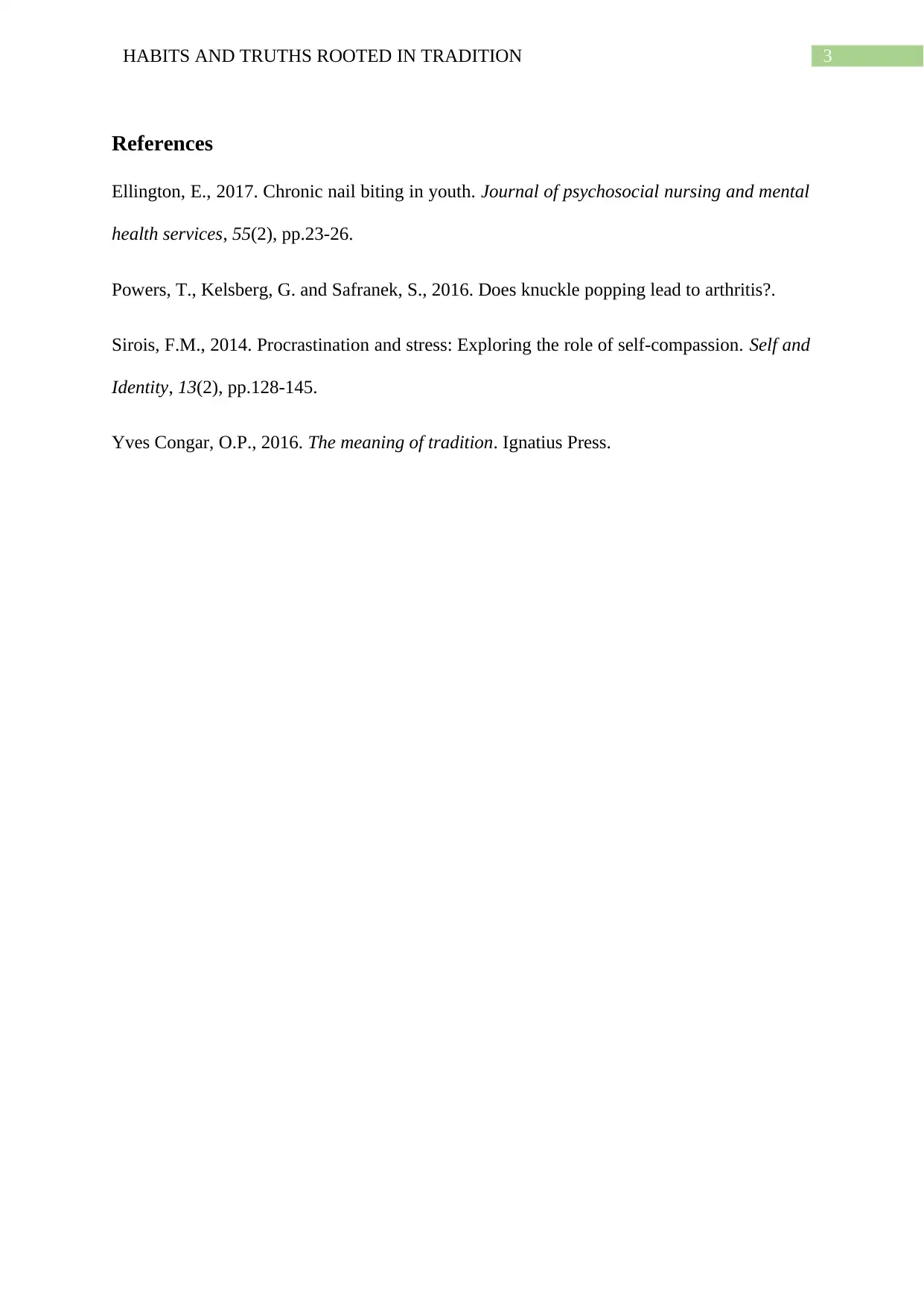Habits and Truths Rooted in Tradition: Societal Practices Analysis
VerifiedAdded on 2022/12/23
|4
|726
|67
Essay
AI Summary
This essay delves into the exploration of habits and truths that are deeply embedded within societal traditions, examining practices that persist across generations despite lacking practical explanations. The discussion highlights various examples, including nail-biting, procrastination, and knuckle cracking, illustrating how these behaviors, often performed to alleviate stress or anxiety, have become ingrained habits even in the absence of scientific evidence supporting their benefits. The essay references key literature to support the claims, analyzing the generational inheritance of these actions, and concludes that these practices, though lacking tangible justifications, are integral parts of the societal fabric. The paper underscores the impact of tradition and belief on individual behavior, demonstrating how habits can become deeply rooted within the culture, influencing actions regardless of their practical implications.
1 out of 4





![[object Object]](/_next/static/media/star-bottom.7253800d.svg)